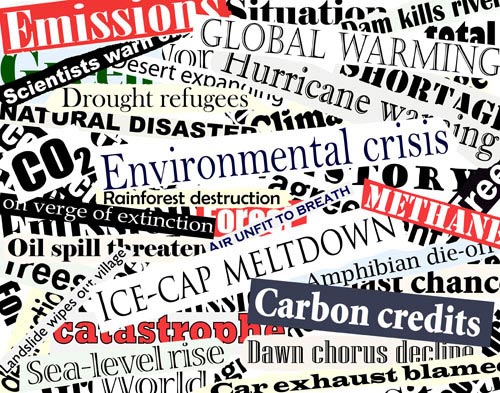In today’s political climate, it seems important new stories break every day. It is also without much surprise that people are now more worried than ever by the frequent reports. As noted by story editor Nitsuh Abebe in April in The New York Times, the past year has seen the growth of a collective sense of political anxiety among Americans who were concerned by the outcome of the United States’ 2016 presidential election.
“As the campaign entered its alarming final weeks, therapists reported widespread ‘election anxiety,’” Abebe wrote. “After its conclusion, just ‘Trump anxiety.’”
Considering the number of American students at McGill, 11.3 per cent of the entering class of 2016 alone, residual anxiety from the U.S. election has kept the campus on edge since last November. McGill also faced no shortage of its own controversial news stories, from reports of sexual violence among members of the SSMU leadership, to the resignation of Andrew Potter.
For U2 Arts student Shereen Elaidi, all of the negative news has pessimistically shifted her worldview, to the point where she claims to be less affected by reports of cataclysmic events than she once was.
“I think the news has impacted my life in a negative way,” Elaidi said. “It makes me angry to see the world full of hate and ignorance, and while I think I’ve gotten numb to [negative stories] because such awful news is so frequent, [before 2016] it would cause me to get upset.”
According to a 1997 study published by Dr. Graham C. L. Davey in Psychology Today, a person’s underlying worries and anxieties can be exacerbated by watching negative reports. With the aid of social media, negative stories pertaining to McGill and the world seem to spread faster than ever.
“We asked each participant to tell us what their main worry was at the time, and we then asked them to think about this worry during a structured interview,” Dr. Davey wrote. “We found that those people who had watched the negative news bulletin spent more time thinking and talking about their worry and were more likely to catastrophize their worry than other people.”
While acknowledging the impact anxiety has on a person, U1 Arts student Damian Arteca believes paying attention to reports is nevertheless important, even if most of them are negative.
“It could become problematic if the state censored media [that it] deemed anxiety-causing, which [would result] in misinformed citizens,” Arteca said. “Possible solutions may include trigger warnings, but I believe the end result should be overcoming anxiety.”
Although it might seem impossible for some to not worry about alarming news events, there are solutions to the problem of news-related anxiety, too. First and foremost, both Dr. Davey and Arteca cite the importance of seeking medical help for anxiety and related disorders, if it affects one’s mood at all times, or impedes one’s ability to function on a daily basis. At McGill, students can seek help regarding anxiety and related conditions through McGill’s Counselling and Mental Health Service.
Additionally, there are ways to limit time spent on potentially stress-causing websites, while still allowing oneself to stay informed. One tool to facilitate this digital escape is StayFocusd, a Google Chrome extension that enables its users to allocate the amount of time allowed on specific websites each day. This can help significantly cut down on mindless scrolling through news and social media sites, thus lowering users’ levels of anxiety.
Looking for good news is also an option. If one wants to read about the highs rather than the lows, there are many resources on the internet that can help. For example, GoodNewsNetwork, which provides positive news stories, and Facebook groups like ‘protect this wholesome content’ can give students a break from negative news stories.
The past year has brought major world changes, and a new presidential era has threatened many people’s outlook on the world, so it is understandable that people are more affected by breaking news. Nevertheless, there are a variety of avenues that media consumers can take to avoid letting news anxiety negatively affect their lives for the next four years and beyond; they can follow different avenues to not let it get the best of them.







